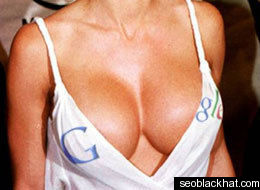I thought of more to say.....I feel like the Fi stance gets misrepresented when it's not FPs arguing it. The FPs in here seem a lot more temperate than Fi is being described by non FP types.
Here's the thing with emotion & Feelers....emotion often ADDS clarity for us, where as with T types it can seem to cloud communication.
Emotion is a signal, both within ourselves & to others, that something is important. Since Fs are value-oriented, emotion is a useful signal. The lack of emotion signals "I don't care", and a lot of emotions signals "This is VERY important".
Most of the time, I simply take Fe emotions as a communication, and it does not bother me. I have little reason to assume most FJs are being fake or manipulate. I don't have a problem with emotional people; I feel like I know where I stand with them. I also find something courageous in emotional expression; a Fi type can have vulnerability issues with positive emotion that I won't go into now.
However, the problem may arise when the Fe type is seeking to affect someone with their emotion. This is often why they are more emotionally expressive than Fi types; they are seeking to create consensus. Consensus leads to harmony & productivity. This is a useful method; Fe is all about value in terms of viability (Jung: "extraverted feeling proves itself a creative factor. Without this feeling, for instance, a beautiful and harmonious sociability would be unthinkable."). Emotion conveys significance to people in a swift manner that hits at the heart of a matter. It's efficient & effective.
Fi types however, RESIST being affected & does not often seek to affect (Jung: "...with no desire to affect others, to impress, influence, or change them in any way.)". They seek to keep a purity of feeling, uncontaminated by external forces. This too has great importance (which I won't bother to explain for the sake of brevity). To the Fe type though, this can seem uncooperative. To the Fi type, the Fe type can seem intrusive & manipulative & demanding. Better the Fe type uses reason to appeal to the Fi type, that way the Fi type feels allowed to assign their own value to something. Fi doesn't allow Fe to take shortcuts, the same way Ti doesn't with Te; and Fe, like Te, assumes its obviously correct & has no need to explain why.
When Fi finds Fe fake, again, it is often based on EXTERNAL DATA, and often his data is gathered OVER TIME, &/or it is based on a deep understanding of human nature & a grasp of the big picture of patterns in people (probably more true of NFPs; SFPs likely use more concrete, immediate data than big picture patterns).
Fe sometimes denies Fi even exists (Jung: "To the outside world, or to the blind eyes of the extravert, this intensive sympathy looks like coldness, because it usually does nothing visible, and an extraverted consciousness is unable to believe in invisible forces."). I've seen Fe types around here belittle the "powers" of Fi. "Anything Fi can do, Fe can do better". That's because Fe skims the surface & doesn't even see the deep well of understanding Fi holds when it comes to people. Fe sees feeling as visible, and since it is more visible than Fi, it sees itself as better. But Fi is a profound, fundamental understanding of the human condition; it has to be, because it judges value based on what individual humans need & who they are at the most basic level. The self is the prototype; that is all. If Fe is the flower, then Fi is the roots of the plant when it comes to human feeling.
So yeah, a person who is in touch with the basic workings of people is pretty good at spotting inauthentic emotion, which amounts to a conflict of what is expressed & what is truly valued by someone.
Van der Hoop says that the Fi type is more aware of inner conflicts, conflicts with the self & the environment, and conflicts within others; but the Fe type is NOT always aware of all of these conflicts, or not to the same degree (While the Fe-type will repress, for the sake of harmony, things both in himself and in the external world which do not accord with his ideal, the Fi-type will remain more aware of such conflicts). The Fe type can be unaware that their expressed feeling does not match their inner feeling, thus appearing fake to others* (see below quote). The Fe type, however, does not FEEL fake because feeling to them is what is appropriate externally (Jung: "it has freed itself as fully as possible from the subjective factor, and has, instead, become wholly subordinated to the influence of the object."). The inner feeling is suppressed, and they remain unaware of any inner conflict (this is the reverse of how Fi types resist external influence on their Feeling). However, the Fi type IS aware of it in themselves & often in others if they get enough Pe data. So for those who get mad when an ENFP claims to see a feeling in you that you don't feel, maybe they're right!

Take it up with Jung if you don't like it (get some INFJ to channel him for you

).
*Jung on Fe: ...it almost seems as though the personality were wholly dissolved in the feeling of the moment. ...Apparently, he is this one moment, and something completely different the next... [However] the basis of the ego always remains identical with itself, and, therefore, appears definitely opposed to the changing states of feeling. Accordingly the observer senses the display of feeling not so much as a personal expression of the [Fe type] as an alteration of his ego, a mood.... Corresponding with the degree of dissociation between the ego and the momentary state of feeling, signs of disunion with the self will become more or less evident..... This reveals itself, in the first instance, in extravagant demonstrations of feeling, in loud and obtrusive feeling predicates, which leave one, however, somewhat incredulous. They ring hollow; they are not convincing. On the contrary, they at once give one an inkling of a resistance [in the Fe type] that is being overcompensated, and one begins to wonder whether [their true] feeling-judgment might ...be entirely different. In fact, in a very short time it actually is different. Only a very slight alteration in the situation is needed to provoke.... an entirely contrary estimation of the same object. The result of such an experience is that the observer is unable to take either judgment [from the Fe type] at all seriously.




 If there's one way to get me to snap at you, it's by doing that. Or by teasing me, to try to lighten the mood.
If there's one way to get me to snap at you, it's by doing that. Or by teasing me, to try to lighten the mood.
 Barring the other person is a complete nutjob, I try to acknowledge their emotions no matter how "stupid" or "irrational" I may view their feelings.
Barring the other person is a complete nutjob, I try to acknowledge their emotions no matter how "stupid" or "irrational" I may view their feelings. ).
). !!!!
!!!!